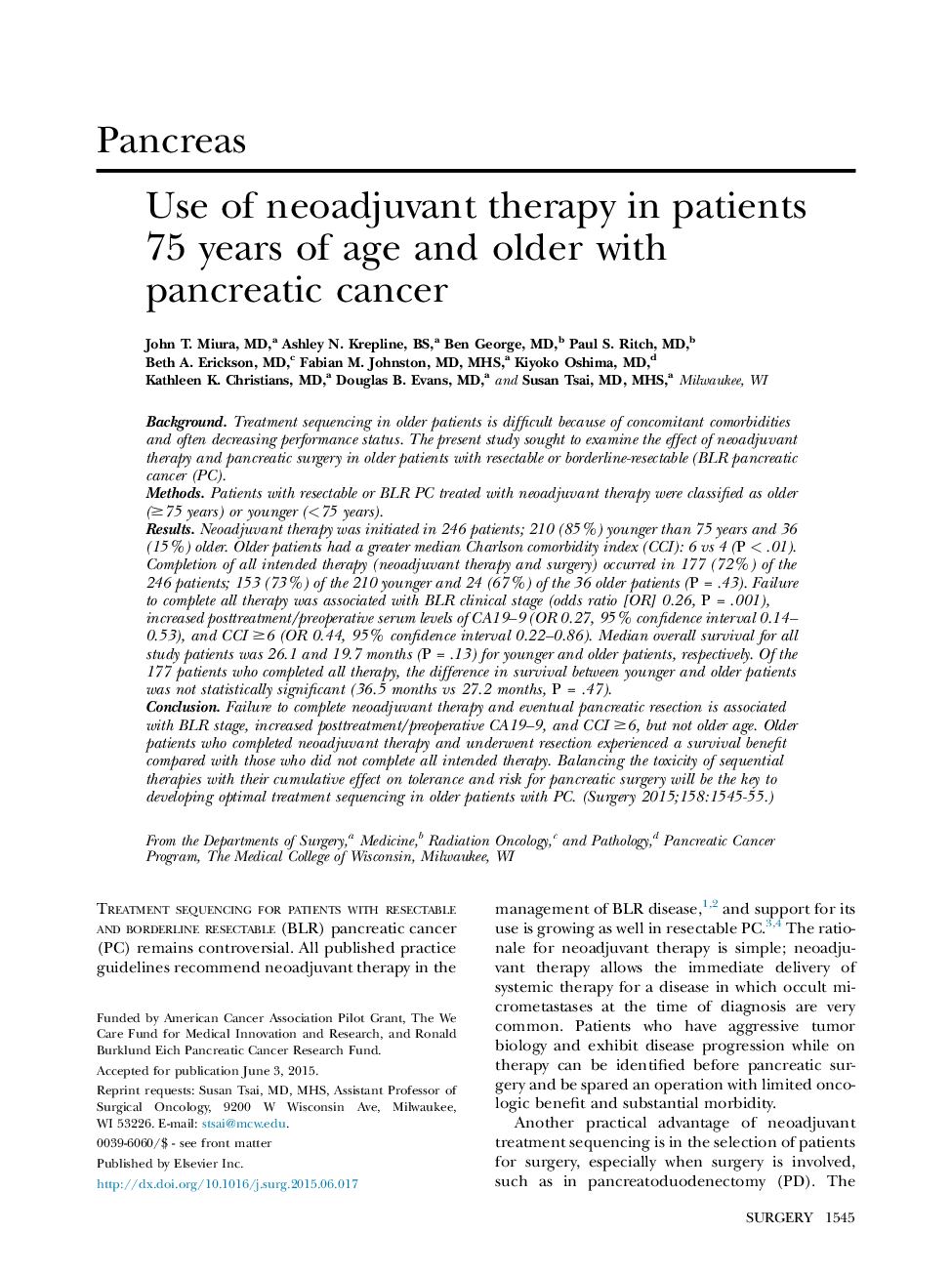| Article ID | Journal | Published Year | Pages | File Type |
|---|---|---|---|---|
| 4306409 | Surgery | 2015 | 11 Pages |
BackgroundTreatment sequencing in older patients is difficult because of concomitant comorbidities and often decreasing performance status. The present study sought to examine the effect of neoadjuvant therapy and pancreatic surgery in older patients with resectable or borderline-resectable (BLR pancreatic cancer (PC).MethodsPatients with resectable or BLR PC treated with neoadjuvant therapy were classified as older (≥75 years) or younger (<75 years).ResultsNeoadjuvant therapy was initiated in 246 patients; 210 (85%) younger than 75 years and 36 (15%) older. Older patients had a greater median Charlson comorbidity index (CCI): 6 vs 4 (P < .01). Completion of all intended therapy (neoadjuvant therapy and surgery) occurred in 177 (72%) of the 246 patients; 153 (73%) of the 210 younger and 24 (67%) of the 36 older patients (P = .43). Failure to complete all therapy was associated with BLR clinical stage (odds ratio [OR] 0.26, P = .001), increased posttreatment/preoperative serum levels of CA19–9 (OR 0.27, 95% confidence interval 0.14–0.53), and CCI ≥6 (OR 0.44, 95% confidence interval 0.22–0.86). Median overall survival for all study patients was 26.1 and 19.7 months (P = .13) for younger and older patients, respectively. Of the 177 patients who completed all therapy, the difference in survival between younger and older patients was not statistically significant (36.5 months vs 27.2 months, P = .47).ConclusionFailure to complete neoadjuvant therapy and eventual pancreatic resection is associated with BLR stage, increased posttreatment/preoperative CA19–9, and CCI ≥6, but not older age. Older patients who completed neoadjuvant therapy and underwent resection experienced a survival benefit compared with those who did not complete all intended therapy. Balancing the toxicity of sequential therapies with their cumulative effect on tolerance and risk for pancreatic surgery will be the key to developing optimal treatment sequencing in older patients with PC.
